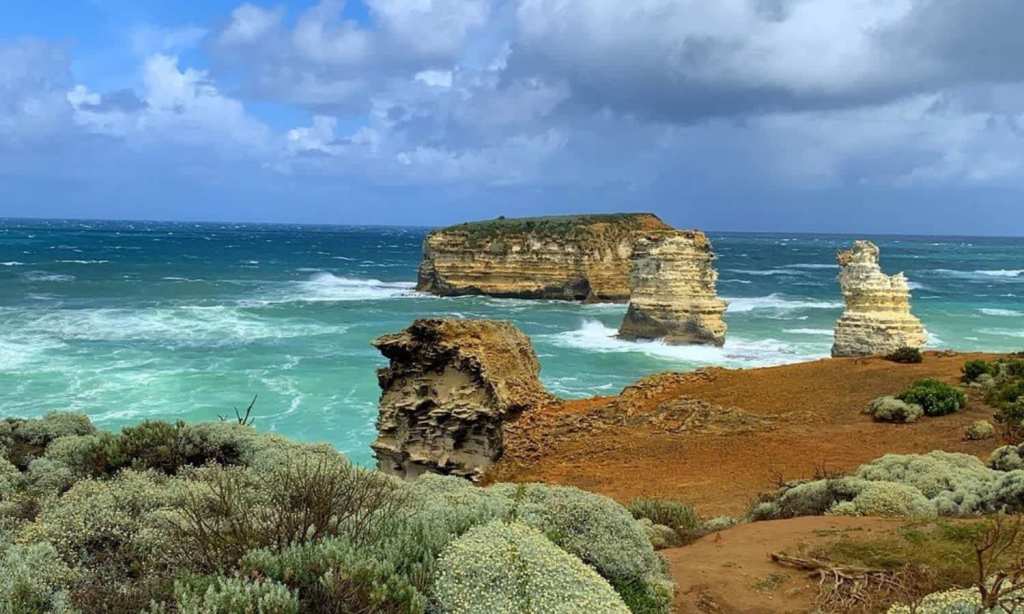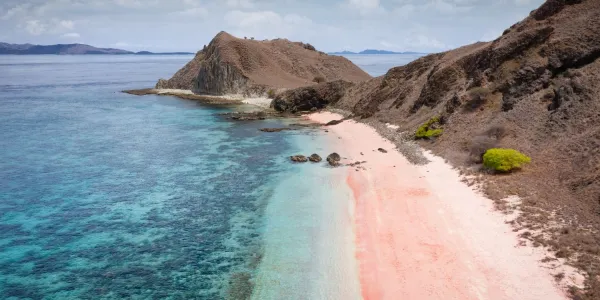Wellness tourism is a multi-million — sorry, multi-billion — industry, and is growing twice as fast as general tourism. Australia is in the top five wellness tourism markets in Asia-Pacific — we’ve even rounded up some examples for you on the east coast.
The thing is, with — you know it’s coming — COVID, we’ve been locked down, locked out, burnt out, working overtime. We’re stressed, not sleeping enough, and, well, you know the rest. We need to take some time out for ourselves. More than that, we need to actively do things that will help us relax, recover, and feel replenished.
That’s where we circle back to wellness tourism — a holiday that helps you retreat from the busyness of the day-to-day, focus on your health and take part in nature. Something that nourishes your mind, your body and yes, your soul.
And if you’re thinking that sounds too “airy-fairy”, science is on our side. Two studies have found there is a significant improvement in health and wellbeing benefits for those who attend a wellness retreat — with positive effects lasting up to five years.
The Latch spoke to Jo Surkitt, owner of Revitalise Escapes, about all things transformational travel.
What is transformational travel?
Surkitt says she loves the definition Jake Haupert — founder of the Transformational Travel Council — provides.
“It is any travel experience that empowers people to make meaningful, lasting changes in their life. Ultimately, it’s a new philosophy on travel that connects travellers to their truest self and to others, cultivating a sense of purpose and belonging.”
What are the benefits of transformational travel?
“Our minds are innately curious,” states Surkitt, which is why transformational tours, like Rivtalise Escapes, are so beneficial. Guests get to “discover, experience, and try” new things they may not have otherwise — sessions, activities, therapies.
A wellness holiday “can make a difference,” she says, explaining that “You not only have the chance to escape from the stresses of daily life but can stimulate your mind in a beautiful location and learn healthier habits.” This involves both relaxing and improving your physical and emotional wellbeing.
After the stressors of COVID-19 last year, Surkitt believes people are coming to the realisation of just how important their mental health, and emotional health, is — and they’re engaging in ways to enhance these elements of their health. “Self-care and nurturing are becoming a priority for many people of all ages.”
What inspired you to create your retreats?
Combining wellness with the opportunity to explore regions of Australia was the “key motivation” in the Revitalise Escapes.
As Surkitt puts it “People want the opportunity to explore nature and wellness along with accessing mindset strategies to build resilience, opportunities to reconnect with themselves and others and enhance their mental and emotional needs that have arisen through the uncertainty and disruption of 2020 or from life in general.”
Referencing several of her own debilitating illnesses and injuries — including being bedridden for six months in 1999 — she claims to have returned to full health by making lifestyle changes. Thus, she was “inspired to help others create positive sustainable change”, she says she feels extremely blessed to combine her two passions — wellness and tourism.
What is offered on Revitalise Escapes that caters to wellness?
Listing them out, Surkitt says there is the opportunity to enjoy “yoga, meditation, Tai Chi, mindset sessions, infrared saunas, bike riding, nature hikes, forest bathing, massages” and more.
“More” includes a high rope climbing course, sound healing, mindful art sessions, specialised medicine sessions, a wellness pack.
If this sounds a bit overwhelming to you, don’t worry — activities are optional. You can just go up to relax and take in the scenery.
The future of wellness tourism
No longer is it just about “remarkable” spa treatments, Surkitt explains, it’s “any travel experience that a visitor chooses to maintain or enhance their own wellbeing.” Being sure to be inclusive, she talks about how for some it may be “active pursuits” while others may choose a more passive route.
“People are investing more time, energy and money into their wellbeing as they’re seeing the benefits of healthy living,” Surkitt tells us — which now includes travel. “Those that are feeling stressed or burnt out are craving ways to feel better within themselves.”
Read more stories from The Latch and subscribe to our email newsletter.







